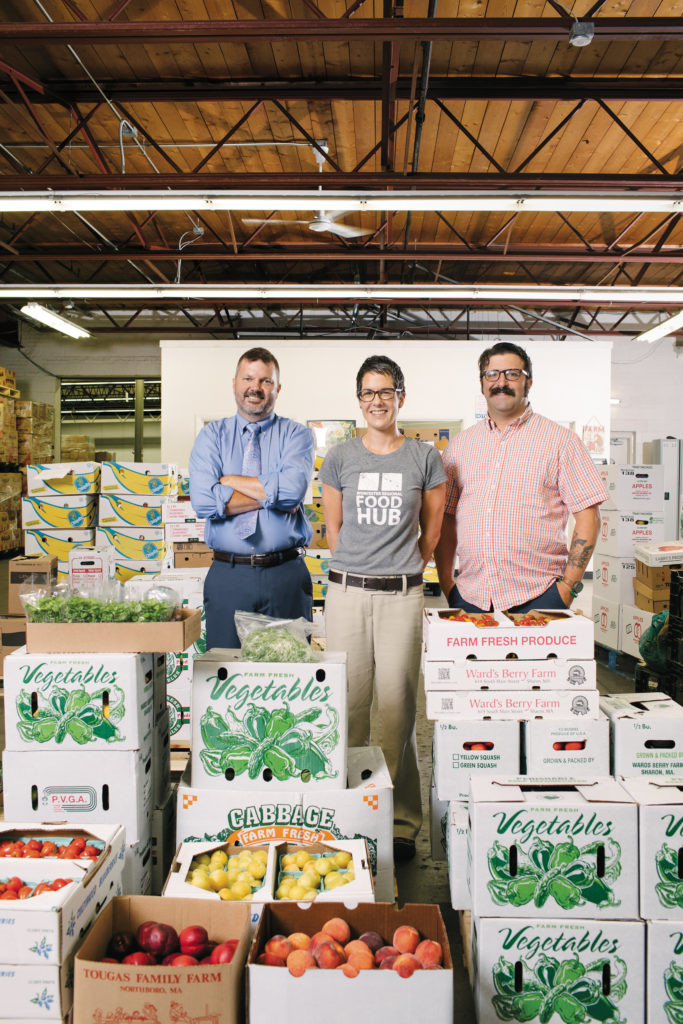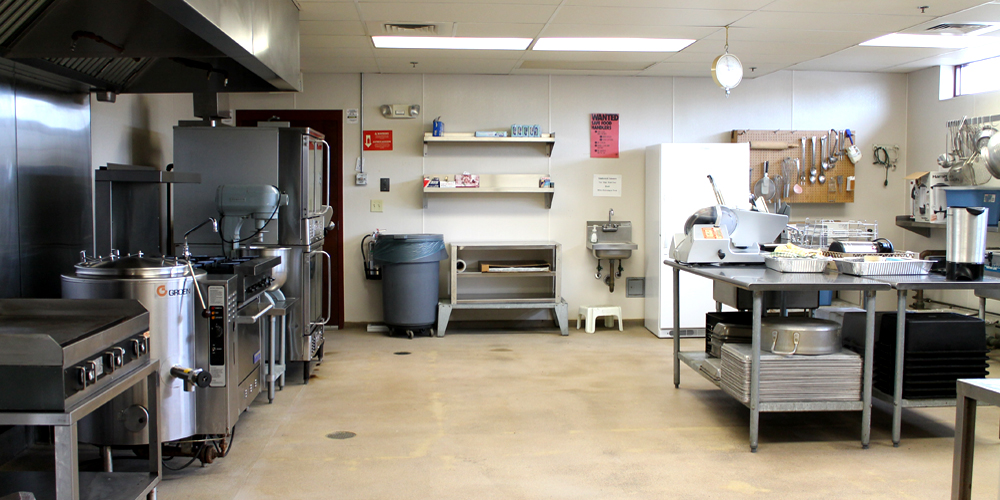Worcester Regional Food Hub Program Targets Area Farmers, Start-Up Entrepreneurs

Fresh, Local Food Fuels Our Bodies and Brings People Together. It Also Improves our Economy and Creates Jobs.
The Worcester Regional Food Hub is a collaborative effort between the Worcester County Food Bank and the Worcester Regional Chamber of Commerce, made possible by the generous support of The Health Foundation of Central Massachusetts. Designed to bolster a robust regional food system, the Food Hub fuses these partner organizations’ respective missions to increase local food access and consumption and recruit, retain, and incubate local food entrepreneurs, collectively building healthy, sustainable, and just communities.
Commercial Kitchen Incubator
As a collaborative effort between the Regional Environmental Council (REC) and the Worcester Regional Chamber of Commerce, the Food Hub program launched its first-ever Commercial Kitchen Incubator in June 2016. The facility located at the Worcester County Food Bank at 474 Boston Turnpike Road in Shrewsbury offers a regulated commercial kitchen, culinary training, and planning assistance to support the development of food businesses by farmers, caterers, and other food entrepreneurs looking to start or grow an existing business.
Dr. Ramon Borges-Mendéz, professor of Community Development and Planning at Clark University, originally teamed up with REC and the Central Massachusetts Regional Planning Commission to submit a grant to the USDA requesting funds to investigate feasibility of creating a food hub in Worcester. A subsequent $524,485 grant from the health foundation is funding the one-year pilot program. Chamber President and CEO Timothy P. Murray is co-director of the project.
The pilot year goals seek to recruit incubator tenants, coordinate business assistance services for tenants, and offer co-packing services to assist farmers with enhanced sales. From a culinary perspective, the kitchen also hopes to define a navigable process for new tenants regarding a bevy of regulatory hurdles they will face out in the real world by working closely with local and state health officials.
Food Hub Operations Manager Shon Rainford, moved to Massachusetts from South Carolina 10 years ago to accept a position at Heifer International in Rutland, where he served as a managing partner before coming to the Food Hub in February. In South Carolina, Mr. Rainford lived “off-the-grid” in a tiny house on 20 acres. Today, he’s living with his family in an 18th century farmhouse in Rutland, raising chickens, sheep and honeybees, and selling eggs from pasture-raised hens on Rainford Family Farm.

Cost for tenants is $25 per hour to use kitchen facility, and there will be a cap at the incubator kitchen for vendors subject to the scheduling of REC staffing. As a food justice organization, Food Hub wants to create low barriers for entry into the program. The kitchen incubator application simply asks for culinary experience, product offerings and basic demographic information. REC staff then sit down with promising applicants to determine their goals and experiences and what support they need.
Food Service Culinary Training Program
The two other tiers of the Food Hub program are also almost ready to launch. The Food Service Culinary Training Program set for roll out in late July aims to provide employment opportunities to chronically un/under-employed populations through a comprehensive education in both classroom and work environments in partnership with Quinsigamond Community College. Johnson said two cohorts of 10-12 students will be created through a certificate program where students will receive 50 hours of classroom training over three to six weeks, followed by a four-month internship with an institutional partner.
Aggregation, Marketing, and Distribution
The program’s Hub for Aggregation, Marketing, and Distribution segment will provide greater market opportunities for local farms by offering logistical support to help increase the produce purchased by local institutions, as well as the amount of affordable, local, healthy food available in underserved communities. Pilot year goals are to connect eight to 10 farmers with five institutional buyers; work with REC Mobile Farmers Market and Worcester DPH Healthy Markets Program to provide access to fresh affordable fruits and veggies to underserved communities; and create lasting business relationships between farms and larger institutions such as school systems, hospitals, and programs that are serving large group of people. Currently, Worcester public schools and Holy Cross College have expressed interest in this aspect of the Food Hub program.
Interested Food Hub program applicants and inquiries should call Shon at 508-667-5792 or email info@worcesterfoodhub.org to get more information. A future website is also in the works.


